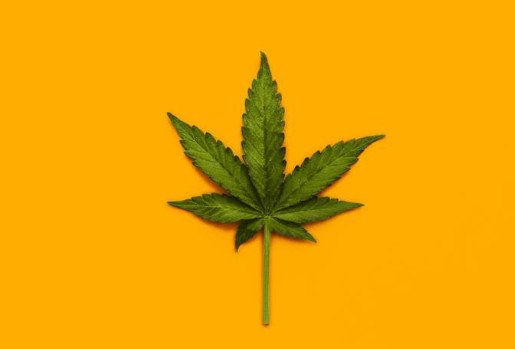ederal prohibition of marijuana has reached a point of absurdity. Under federal law, marijuana is illegal for any purpose, categorized as a Schedule I drug “with no currently accepted medical use and a high potential for abuse.” But in 29 states, the District of Columbia, Guam, and Puerto Rico, cannabis is legal for medicinal use, and in eight states plus D.C., it’s also legal for recreational use.
The states and the federal government are effectively locked in a cold war over pot. That war is about to get hot. And Democrats, thus far reluctant warriors, need to pick up their arms.
Despite Donald Trump’s campaign promises to leave legal pot alone, he appointed Jeff Sessions as attorney general. Sessions is a drug war dinosaur who has called marijuana “only slightly less awful” than heroin. His Justice Department appears poised to reverse the second Obama administration’s relatively lax policy toward state-regulated cannabis by prosecuting and imprisoning marijuana users and distributors, even those operating in states where it is legal and complying with state law. So far, the Democratic Party has remained mostly silent about this looming threat—a disastrously stupid position. A supermajority of Americans support legalizing marijuana for both recreational and medicinal use. Weed is a winning issue for Democrats. It’s time they start acting like it.
A CBS poll released on Thursday demonstrates the astonishing popularity of legalization across the country. According to the poll, 61 percent of Americans support legalizing recreational use, while 88 percent support legalizing medicinal cannabis. Further, 71 percent of Americans oppose federal intervention in states that have legalized some form of marijuana. Support for legal weed is particularly high among Democrats and young people: 68 percent of Democrats support legalizing recreational marijuana, while 92 percent support legalizing the substance for medicinal use. And 3 in 4 adults under the age of 35 favor full legalization.
These numbers have risen almost every year for decades. Washington’s response to this shift has been sluggish. Congress did bar the federal government from prosecuting medical marijuana growers, users, and sellers. But that was through an appropriations rider that could easily disappear from the next spending bill—and in the meantime, it remains open season on recreational pot users and sellers. Recent statements by both Sessions and White House press secretary Sean Spicer suggest that the feds will soon crack down on recreational pot.
Democrats, for the most part, loathe Sessions and favor legalizing marijuana. So you would expect the national Democratic Party to seize on cannabis as a cornerstone issue that could signal resistance to Trump, while being defensible and popular. But that has emphatically not been the case. During his primary run, Sen. Bernie Sanders said he supports removing cannabis from the federal Controlled Substances Act. His delegates managed to squeeze vague languageabout future legalization into the party platform, but Hillary Clinton could not bring herself to endorse that plank. Instead, she favored rescheduling cannabisas a Schedule II drug—a downgrade that would place it alongside opioids and cocaine. (Yes, in America in 2017, marijuana is considered more dangerous than opioids.)
To be fair, Clinton was only continuing Obama’s overly cautious approach to marijuana. Obama’s Justice Department prosecuted medical marijuana growers and sellers who complied with state regulations well into his second term. The president finally came out in support of legalization, or at least decriminalization, at the end of his tenure—and even then he was very hesitant. But the twilight of the Obama era could have marked something of a detente in the cannabis cold war.
Of course, with Sessions in charge, there’s no longer hope of a detente, and the Democratic Party’s silence is deafening. A handful of senators have sent a letter to Sessions urging him to maintain the Obama administration’s laissez-faire policy, and a few congressman have publicly criticized his anti-pot stance. But that’s about it. Meanwhile, the Justice Department is actively preparing to follow through on Sessions’ promise of “greater enforcement” of federal marijuana laws.
The lack of mobilization from lawmakers is especially puzzling given how neatly marijuana legalization aligns with the goals of the self-styled resistance to Trump. Progressive Trump opponents not only tend to favor legalization on its own, they also broadly support the goals behind legalization. It’s true that the Trump era has reinvigorated liberals’ support for federalism, mostly out of necessity as blue states band together to protect sanctuary cities and fight Trump’s travel ban. But it has also intensified liberals’ opposition to mass incarceration and racial bias in the criminal justice system. Concerns about overpolicing and racism in law enforcement are what animate progressive support for legalization, along with a healthy respect for states’ rights and personal liberty.
And yet, on pot as on so many other issues, Democratic politicians are failing to respond to their base’s stated preferences. Many Democratic officeholders still oppose legal recreational cannabis, while others are unwilling to voice their support beyond a standard plug for medicinal use. Congressional Democrats have failed to rally around a bill that would lift the federal ban on pot, even though such legislation would deprive Sessions of the ability to conduct his crackdown. You don’t see Democratic legislators admonishing the administration for its plans for “greater enforcement” each night on MSNBC, even though it’d clearly be a winning issue.
Some of this silence has been purchased by lobbyists for the pharmaceutical industry, which is understandably terrified of cannabis’ painkilling potential. But most of it is likely due to discomfort with the pace of change. Democrats, like most American politicians, got used to talking tough on drugs. But they’re going to have to seriously reevaluate their positions if they want to keep up with public opinion. Marijuana prohibition, like the broader war on drugs, is a self-evident failure: unsustainable, expensive, immoral, and ultimately pointless. The American people—and the resistance to Trump in particular—are leading the country toward a more sensible policy. It’s time for the Democratic politicians to catch up with them.
credit:slate.com













